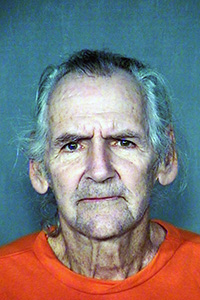
In this Oct. 4, 2018 photo, the U.S. Supreme Court is seen at sunset in Washington. (AP Photo/Manuel Balce Ceneta)
The U.S. Supreme Court has rebuffed a bid by Attorney General Mark Brnovich to rule that prosecutors are entitled to multiple attempts to convict someone of first-degree murder even after a jury effectively has found the charge has no legal merit.
Without comment, the justices refused to consider efforts by Brnovich to reinstate first-degree murder charges against Philip J. Martin after a jury could not agree that he was guilty of that crime. Instead, jurors found him guilty of second-degree murder, resulting in a 16-year prison term.
That would have been the end of it except that the conviction was overturned because the trial judge refused a request by Martin’s attorney to tell the jury about the right to use force in prevention of a crime. That went directly to Martin’s defense he feared for his own safety when he shot his neighbor, who was on Martin’s Golden Valley property.
At a new trial, prosecutors once again brought up the first-degree murder allegation, this time with jurors agreeing and Martin being sentenced to life behind bars.
But the Arizona Supreme Court in August tossed that conviction, ruling that second trial amounted to “double jeopardy,” with Martin put on trial twice for the same offense.
That sent Brnovich to the U.S. Supreme Court to argue that the law makes it clear that when there is a “hung jury” that prosecutors are free to retry a case on those same charges.
While the federal justices did not explain the decision to reject his arguments, that was not the case at the state Supreme Court. Arizona Justice Clint Bolick who authored that decision, said this isn’t your typical “hung jury” case.
Put simply, Bolick said, jurors did, in fact, reach a verdict. It just wasn’t the one prosecutors wanted.
Now Martin is entitled to a third trial, this one charging him only with second-degree murder.
It is undisputed that Martin killed neighbor Steven Jeffrey Schwartz with a single shotgun blast as Schwartz was walking toward Martin’s home.
According to court records, Martin admitted to police at the scene, and again at trial, that he shot Schwartz because he had ignored Martin’s command to get off his property. Martin said he believed that the victim was armed and was going to harm him.
Jurors in the 2013 Mohave County trial were given a verdict form with three options from which they could select for the first-degree murder charge: guilty, not guilty, or unable to agree. The second part of the form contained two options for second-degree murder: guilty or not guilty.
More to the point, it advised the jury to complete that second section only if it found Martin not guilty of first-degree murder or was unable to agree on that charge.
After about two hours jurors said they could not agree on the first charge but concluded Martin was guilty of second-degree murder. That led to the second trial, the guilty verdict on first-degree murder — and the Arizona Supreme Court ruling saying prosecutors had no right to resurrect that first-degree murder charge. When the Arizona justices ordered a third trial — and only on the second-degree murder charge — Brnovich sought U.S. Supreme Court intervention.
Brnovich told the U.S. Supreme Court the results of the second trial and the guilty verdict on first-degree murder should stand.
If nothing else, Brnovich argued that Martin, in seeking to have the verdict in the first trial voided, knew there was a risk that he could be retried on first-degree murder when he successfully appealed the second-degree murder conviction.
Not true, Bolick wrote for the Arizona Supreme Court.
“The general rule is that the prosecution is entitled to only one complete opportunity to prove the case,” he said.
Bolick said that does not apply in cases when a mistrial is declared because of a “hung jury” where they cannot reach a verdict. But Bolick said that wasn’t the case here.
He pointed out that that jurors were told if they could not agree on first-degree murder, something that requires a showing of premeditation, they should consider the lesser charge. They did that, Bolick said, finding him guilty of second-degree murder which is based on someone “intentionally causing the death of another person.”
What that means, Bolick wrote, is that prosecutors had the opportunity to try to convict Martin on the first-degree murder charge “but was unable to persuade the jury to convict.” That, the justice wrote, means that they can’t try again.
Jill Evans, a deputy Mohave County legal advocate, told Capitol Media Services earlier this year she believes that a new trial — one where prosecutors aren’t arguing premeditation — gives Martin a better chance of being acquitted based on his claims of self-defense and being justified in shooting his neighbor.
"hear" - Google News
May 19, 2020 at 06:21AM
https://ift.tt/2zcPst5
Supreme Court refuses to hear Arizona 'double jeopardy' case - Arizona Capitol Times
"hear" - Google News
https://ift.tt/2KTiH6k
https://ift.tt/2Wh3f9n
Bagikan Berita Ini
















0 Response to "Supreme Court refuses to hear Arizona 'double jeopardy' case - Arizona Capitol Times"
Post a Comment